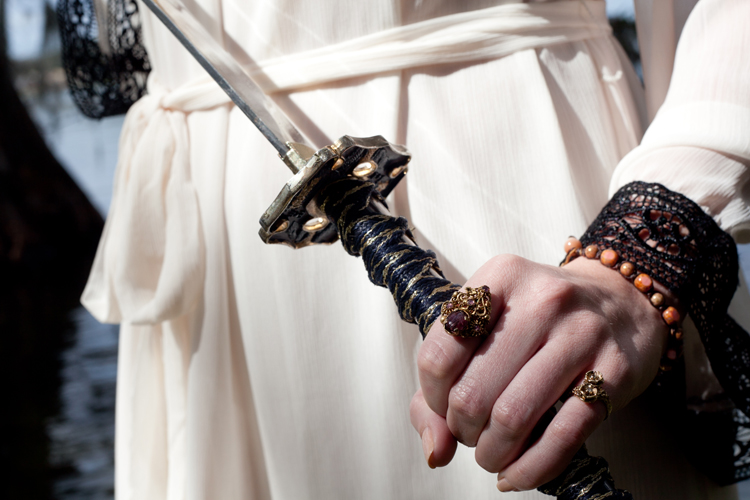Whenever Murat visited our family farm during the Festival of the Great Slaughter he used to gather all the little boys and all the little girls in the pagoda overlooking the lake and declare that the place was our own nascent empire. It didn’t have a name, or even an organizing principle, except, of course, Murat’s inner vitality. He was the one who protected us from the long-tongued Caucasian monsters licking their way through the Great Bronze Wall of the North. And he was the one who defended us from the Two Horned King coming up from the South. Murat was everything.
While Murat fought the invented enemies, all the other children gathered together on the island of imagination and adopted some kind of anodyne role as citizenry. Princesses and water bearers. Warriors and squires. Sailors and shopkeepers. A polis. Then they would all gather together in the marketplace and talk about how Murat was out there at the frontier, our ultimate weapon, the apex of our cumulative personhood. Sometimes they would clap for him. Sometimes they would sing his name. Sometimes they would gape at his boundless energy. They belonged to Murat.
I was the only one who didn’t become a citizen. I didn’t want to be amalgamated with all the others. They were forgotten and ignored by Murat. I wanted him to see me as distinct. I wanted him to know my name. For the longest time I hoped that Murat would pull me aside and ask my counsel, or hand me a weapon that he had forged in some Chinese monastery, or perhaps appoint me his Vizir. But all my waiting was for naught.
One day I crossed the threshold. Murat was shirtless, bearing a wooden sword, contesting in the deserts against some hydra, when I jumped out of the pagoda and dove into the imaginary ocean that surrounded our civilization. I declared myself an enemy to Murat’s kingdom. “I come from the West. My name is Gaius. I am an immortal Roman philosopher trying to recreate ancient legacies!” From my warship held together by algebra and syllogism I hurled Latin invective against the people of Murat and threatened to lay their land to waste.
When they saw what I had done, the way I had disavowed their sovereign, all the other children heaped me with scorn. “Look at Ismail thinking he is something!” But I didn’t care what they thought. All I had wanted was to stand singular before Murat. And I could only do that as his enemy.
It took Murat a moment to recognize what had happened. Then, with a piercing cry, he leapt, knocked me over and sat astride my chest, his hands choking my throat, and his bare sinewy thighs squeezing my torso.
As he looked down at me, I reached up and held his shoulders, looking into glowing gray eyes, slowly uttering no, no, no, resisting just enough to prolong his presence on top. And then I let myself go limp. In that moment, when Murat vanquished me, we were at last alone together.
The Festival of the Great Slaughter was my favorite holiday of the year. To this day the sound of sheep bleating as they are led to their death is to me the sound of love.

